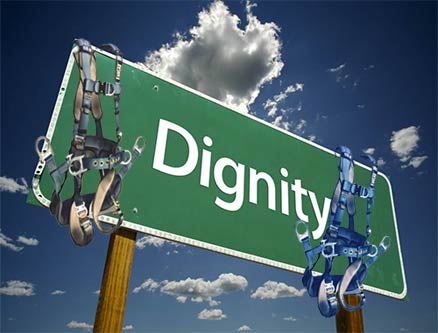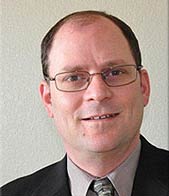Although Telecommunications Industry Registered Apprenticeship Program Chairman Scott Kisting embraces every opportunity available that will assist wireless technicians in working safer, he believes that there  are two key components that ride above all others: human dignity of all within the workforce and the proper awareness, planning, education and application of existing standards.
are two key components that ride above all others: human dignity of all within the workforce and the proper awareness, planning, education and application of existing standards.
While there are many people at work trying to ensure that the industry provides a safe work environment, many of the conversations that are discussed, such as anchor points, inspections, maintenance, design changes and others are important, but there are two core issues that must be addressed above all, Kisting explained to Wireless Estimator in an interview.
“As we are well aware, most of the damage to towers, equipment and appurtenances occurs at the hands of contractors that do not understand the standards and how it applies to their scope of work or how to communicate properly with the clients to inform them of the onsite conditions experienced during various installations,” Kisting said.
“Very seldom have I ever run into a situation in my career where I was unable to work with the client to help them understand the standards and work to a solution that safely resolved the issue in accord with the standards.”
“Currently, there are a great number of people that are working towards the increased awareness of the standards and their application. It is my hope that as an industry we will recognize our areas of responsibility and work to become better informed in those areas,” Kisting said.
“Secondly, I believe that it is critical to address the human dignity of all within our workforce,” he said.
“If we don’t respect the dignity of ourselves and others we really don’t have an effective starting place that will lead to the conversation and resolution of the issues we face.”
“When we look at some of the deaths that have occurred it seems that the PPE or other equipment is in place, but it does not appear it was properly utilized. It seems to me that we must do a better job as an industry to convey to the men and women that work in wireless how important they are to the industry and to the American people.”
“Think of it this way,” Kisting explained. “Twenty years ago the cellular phone was a luxury service; that is simply not the case anymore. Wireless telecommunications has become a necessary and essential means of communication. We are using this service to compete in more effective manners on a global scale while providing a means to be more efficient in most every area of our daily lives.”
“In the case of a disaster, the restoration of wireless communication is critical in the endeavor to restore the affected area and to facilitate rescue. When we think of all these great things that occur every day in this country because of what these men and women do we have to take pause and think of how to convey our thanks, support and recognition of the dignity of each of these men and women. We should all seek to help them plan their work daily so that it is done in a safe, quality and effective manner,” said Kisting.
When safety issues arise, Kisting said the industry should be willing to understand and work through those concerns in a manner that helps workers address the problem and deliver a work product that they are proud of.
“When we hold people accountable for their actions it is then that we will correct the second of what I believe are the two core issues to address allowing the industry to have a quality work product in the safest manner.”
“There is a quote that goes along the lines of ‘get the first things first and the rest will follow.’ This is where I think we are as an industry. It is not as simple as stopping some of the other meritorious conversations, but my suggestion is that we as an industry frame these conversations around these two basic issues,” Kisting said.
 Scott Kisting will be speaking at the 2015 Environmental, Health & Safety International Communications conference on Thursday in Los Angeles, Calif.
Scott Kisting will be speaking at the 2015 Environmental, Health & Safety International Communications conference on Thursday in Los Angeles, Calif.
He is the Senior Vice President for Risk & Compliance for Midwest Underground Technology. He was a Subject Matter Expert for the OSHA Training Institute and continues to work with members of ANSI/TIA as well as other committees in support of education in the industry.


















